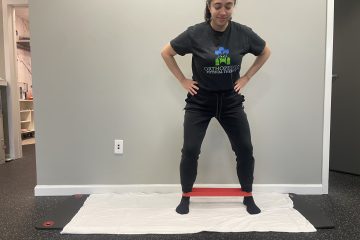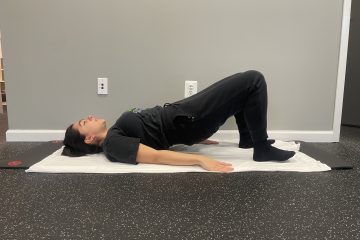A patient emailed us this week, sharing the following:
“I got a cystocele with my last pregnancy and I think a grade 2 or 3 tear. I’m so scared of tearing again or making myself prolapse even more. So far my doctor’s attitude has been to accept that I’ll probably further injure myself and there’s nothing that I can do now to prevent it.

I know that everyone talks about a healthy mom and baby being the most important thing, but I kind of feel like that’s setting the bar too low.
I’d really like to not injure myself even more and try to fix my cystocele (not sure if it can be fixed without surgery) if I can.
Anyway, my question is, in your guys’ experience, is it true that there is a higher likelihood of protecting yourself from tearing without an epidural? I heard when induced, the body’s contractions are much stronger than they’d naturally be, and lying on your back in the hospital doesn’t allow the pelvis to expand all the way and creates more work for the mom, pushing up against gravity and drastically increases her chances of tearing. Curious about your thoughts!”
Wow. So much to unpack here!
First, YES that was setting the bar extremely low! Unfortunately, it’s also an all-too-common setting.
So many times when patients come to us, they share that they asked their providers if they could do pelvic health PT to prepare for a better birth and postpartum, and get the response “Wait until you’re done having kids.” !!!!!
🥵🥵🥵 That is such harmful misinformation. It makes my blood boil! Please stop and read this post on the importance of pelvic health PT for ALL birthing people if you haven’t already.
So back to our patient’s questions—let’s break them down starting with the bladder prolapse (cystocele).
Prolapses are caused from prolonged pressure to a weak area. So although having extended pushing times (which can be common with epidurals because mamma and her body aren’t able to be fully in touch with each other) can contribute to prolapsing, prolapses aren’t typically caused solely from birthing.
The prolonged and increasing pressure from a growing baby on a weak pelvic floor is the much more common culprit of a post-baby prolapse, way more so than the birth itself.
Going to Pelvic Floor PT to strengthen the abs, glutes, and maintain a dynamic (able to contract and relax) pelvic floor, are the best things any pregnant person can do to avoid a worsening prolapse before birth.
Onto an unmedicated birth: yes, there are undeniable benefits to a physiologic birth.
If attempting to have an unmedicated birth in the hospital setting, it’s vital to hire a doula. Hospitals don’t like unmedicated births (they are less expensive), and providers are very pushy because interventions are what they know (many practicing OBs have not even attended an unmedicated birth). Having an advocate in the form of a birth doula is invaluable—no one wants to fight with a provider through their birth.
Doulas are also skilled at helping with pain management, positions that encourage dilation, and reminding the birthing person and partner that what’s happening is normal* even when labor feels too big or too long or too hard.
*Caveat: of course there are medical emergencies in which interventions are necessary for both baby and birthing person’s health and safety. Doulas are also wonderful when these emergencies come up because they can inform the birthing person on the purpose of an intervention and potential risks/benefits.
Short answer: yes, unmedicated birth absolutely reduces risk of tearing and decreases length of pushing if the birthing person is working with a supportive provider and has the birth education/support to advocate for best practices. In re prolapse, the work done prenatally is incredibly important and a physiologic birth alone cannot manage the pressure of a growing baby on the pelvic floor.
Additionally prolapses cannot be fixed, but if a prolapse stays below a grade 3, (so a grade 1 or 2), it does not need to be addressed surgically and pressure can be managed through Pelvic Health PT (even decades postpartum!).
I am so grateful this patient reached out, and I hope her questions and our answers are helpful to anyone who needed to read this.
Did the answers to any of these questions surprise you?
Did you or someone you know have a similar experience with a care provider?
If you want to set the bar higher for yourself, if you want more than you see is the normal baseline around you, book a FREE 10-minute consult call today. We are your people. And we know we can help you ✨
Be empowered in education,
OrthoPelvic Physical Therapy


